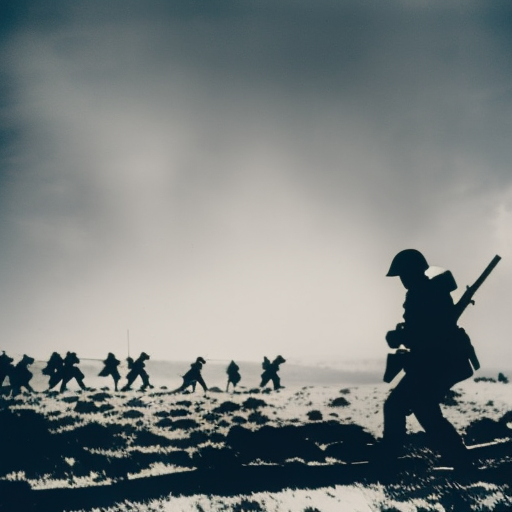Battle of Solferino: A Turning Point in the Unification of Italy
The Battle of Solferino, fought on June 24, 1859, was a pivotal event in the process of Italian unification. It was a major battle of the Second Italian War of Independence, fought between the forces of the Kingdom of Sardinia, led by King Victor Emmanuel II, and the Austrian Empire, led by Emperor Franz Joseph I. The battle took place near the town of Solferino in northern Italy and resulted in a decisive victory for the Franco-Sardinian alliance.
The Context:
In the mid-19th century, Italy was a fragmented collection of states and territories, under the control of various foreign powers. The desire for national unity and independence had been growing among the Italian people, and this battle became a symbol of their struggle for unification.
The Battle:
The battle began with the Austrian forces launching a series of attacks against the Franco-Sardinian army. The Austrians initially had the upper hand, but the arrival of French reinforcements under the command of Emperor Napoleon III turned the tide in favor of the Franco-Sardinian alliance. The battle was fierce and bloody, with both sides suffering heavy casualties.
The Role of Henri Dunant:
One of the most significant aspects of the Battle of Solferino was the presence of Swiss businessman Henri Dunant. Dunant happened to be in the area on a business trip and witnessed the horrors of the battle. Shocked by the lack of medical care for the wounded soldiers, he organized local villagers to provide aid and comfort to the injured. This experience inspired Dunant to establish the International Committee of the Red Cross, which would go on to provide humanitarian assistance in times of war and disaster.
The Aftermath:
The Battle of Solferino had far-reaching consequences. The defeat of the Austrian Empire weakened their hold on Italy and paved the way for the eventual unification of the country. It also demonstrated the effectiveness of modern warfare and the need for international agreements to protect the wounded and prisoners of war.
The Impact on Italian Unification:
The Battle of Solferino was a turning point in the process of Italian unification. The victory of the Franco-Sardinian alliance boosted the morale of Italian nationalists and increased support for the cause of unification. It also led to the signing of the Treaty of Villafranca, which ended the war and resulted in the annexation of Lombardy by the Kingdom of Sardinia.
The Legacy:
The Battle of Solferino had a profound impact on the international community as well. The suffering witnessed by Henri Dunant inspired him to advocate for the establishment of international rules and organizations to protect the rights of war victims. This led to the Geneva Convention and the creation of the International Red Cross and Red Crescent Movement.
In conclusion, the Battle of Solferino was a significant event in the history of Italy and the development of humanitarian principles. It marked a turning point in the process of Italian unification and highlighted the need for international agreements to protect the rights of those affected by war. The battle’s legacy lives on through the work of the International Red Cross and the continued pursuit of peace and humanitarian values.












